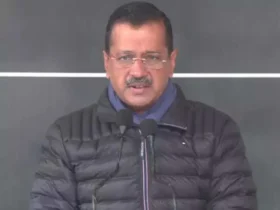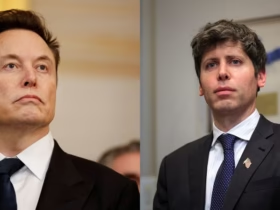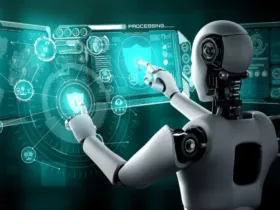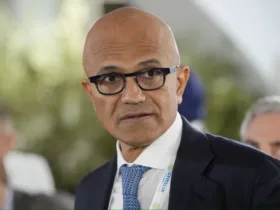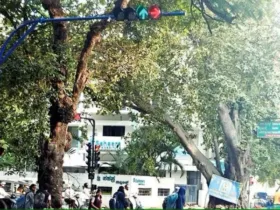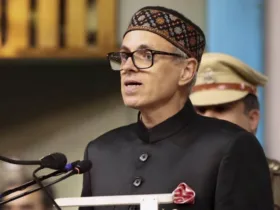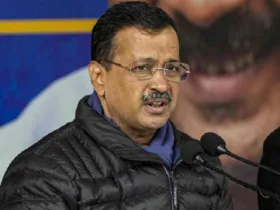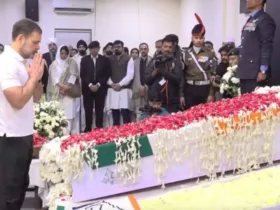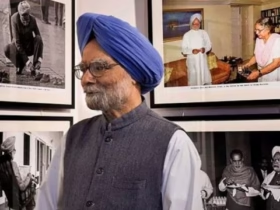Table of Contents
Introduction of the Bill
The government introduced the controversial ‘One Nation, One Election’ Bill in the Lok Sabha, sparking a heated debate among political parties and experts. Union Law Minister Arjun Ram Meghwal proposed referring the bill to a Joint Committee for broader consultations, highlighting its importance in India’s electoral reforms. Prime Minister Narendra Modi has called it a significant step forward for India’s democracy, aiming to bring efficiency in the electoral process. The Union Cabinet approved the One Nation, One Election bill on December 12, a move that has garnered mixed reactions across the political spectrum.
In September, the Union Cabinet accepted recommendations from a High-Level Committee led by former President Ram Nath Kovind. The proposal of One Nation, One Election includes conducting simultaneous elections in two phases—starting with the Lok Sabha and state assembly elections, followed by local body elections within 100 days. Another key aspect of the One Nation, One Election bill is the introduction of a common electoral roll, a change that has sparked discussions on its potential implications.
Government’s Stance
Union Minister of Parliamentary Affairs Kiren Rijiju has strongly criticized the opposition, stating that the Congress party favors frequent elections, which he believes strain national resources. Rijiju emphasized, “One Nation, One Election is not just for political parties but is essential for the nation. Frequent elections disrupt governance and hinder the smooth functioning of the government.” He also accused the Congress of misusing Article 356 of the Constitution, which leads to the dissolution of state governments and disrupts the electoral system established post-independence.
Rijiju further questioned the opposition’s stance, asking, “Does Congress think that elections during Pandit Jawaharlal Nehru’s tenure were illegitimate? The BJP believes elections should serve the country, not disrupt governance.” This stance has also garnered support from some NDA allies, including the TDP, which has backed the bill. TDP MP Lavu Sri Krishna Devarayalu voiced his support, stating, “This pro-development bill will foster good governance. Chandrababu Naidu has always championed initiatives that promote development.”
Opposition Reactions
Congress
The Congress party has vehemently opposed the One Nation, One Election bill, calling it unconstitutional and accusing the government of undermining democracy. Congress MP Jairam Ramesh expressed strong reservations, claiming, “This bill goes against the basic structure of the Constitution. It aims to replace the existing Constitution with a new one.” Concerns were also raised by Congress President Mallikarjun Kharge in a letter to former President Ram Nath Kovind, questioning the bill’s constitutional validity.
Samajwadi Party
Samajwadi Party (SP) Chief Akhilesh Yadav has criticized the One Nation, One Election bill as undemocratic and a step toward autocracy. He remarked, “If the BJP is so confident about this bill, why delay its implementation? Dissolve the central and state governments and hold elections immediately.” Yadav further warned that the bill could lead to demands for dissolving the Rajya Sabha, which could undermine India’s federal structure.
Trinamool Congress
Trinamool Congress (TMC) leader Abhishek Banerjee labeled the bill as a “direct assault on democracy,” arguing that it robs citizens of their constitutional right to vote regularly. Banerjee said, “This bill is an unashamed attack on democracy and undermines the people’s voice.” The TMC has continued to voice strong opposition to the bill’s provisions, calling for an open debate on its potential consequences.
Shiv Sena (UBT)
Priyanka Chaturvedi from Shiv Sena (UBT) has also criticized the bill as unconstitutional and damaging to India’s federalism. Chaturvedi argued, “Tampering with the election process to centralize power weakens democracy. This goes against the Constitution and the principles of federalism.” The Shiv Sena has been vocal about the bill’s potential to disrupt the balance of power between the center and states.
Conclusion
The ‘One Nation, One Election’ Bill has triggered intense debate in India, with the government highlighting its potential for greater efficiency in governance and the opposition raising concerns about its impact on democracy and federalism. As discussions continue in Parliament, the outcome of this bill will play a crucial role in shaping the future of India’s electoral system. The bill’s passage or rejection will have long-term implications for India’s democracy, governance, and federal structure.
Stay updated with the latest news on this bill and its potential impact on India’s democracy.
Learn more about the proposed bill and its potential consequences on The Times of India.


